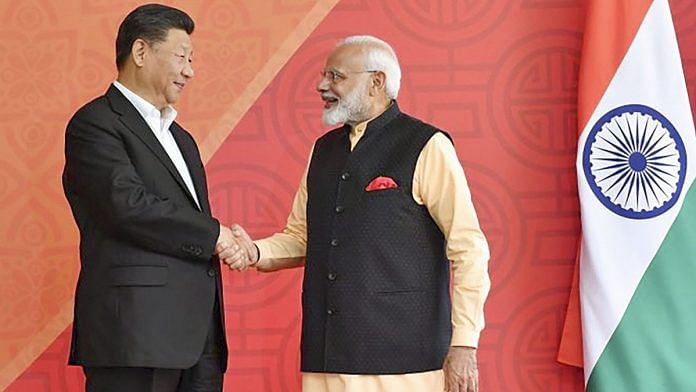New Delhi/Hong Kong: India keeps making last-minute requests after it agreed to terms for the world’s largest regional trade agreement, potentially preventing Asian leaders from announcing a breakthrough next week on the 16-nation pact during a summit in Bangkok, people familiar with the situation said.
In recent days, India angered other negotiators by making additional requests on the China-backed pact covering half the world’s population, said the people, who asked not to be identified because the talks are private. Leaders had planned to announce a preliminary deal on Nov. 4 during meetings hosted by the Association of Southeast Asian Nations, the people said.
Chief negotiators are still confident they can reach a broad agreement on the deal to reduce tariffs, known as the Regional Comprehensive Economic Partnership (RCEP), during a planned meeting on Thursday in Bangkok, the people said. Any announcement would pave the way for nations to finalize the details on the legal framework in the coming months.
A breakthrough after seven years of talks would mark a win for trade liberalization in an era of rising tariffs and resurgent nationalism. The deal would also further integrate Asia’s economies with China at a time when U.S. President Donald Trump is seeking to convince the region to shun Chinese infrastructure loans and 5G technology.
India, which has raised some tariffs under Prime Minister Narendra Modi, has long been the main holdout on an RCEP deal due to strong domestic opposition over fears the country would be flooded with cheap Chinese goods.
Also read: India should join RCEP because it needs more trade, not less
India Demands
Modi, who is fresh off a landslide re-election win in May, agreed to move ahead with the deal after receiving personal assurances from Chinese President Xi Jinping in an informal seaside meeting earlier this month, an Indian official said. China has long pushed to conclude the pact, which also includes Japan, South Korea, Australia, New Zealand and 10 Southeast Asian nations.
Still, India came up with new demands after a broad RCEP agreement was concluded, seeking changes in base duties and product-specific rules, according to an Indian official. Two Indian officials said Modi’s government would push for further concessions but is likely to agree to sign due to fears that India could be left out of the announcement, forcing it to negotiate with countries on a bilateral basis.
The office of the prime minister in India didn’t immediately respond to a request for comment. A spokeswoman for India’s trade ministry didn’t answer two calls made to her mobile phone.
‘New Energy’
“I have been quite skeptical of a robust RCEP coming to conclusion, due entirely to India’s intransigence,” said Richard Rossow, the Wadhwani Chair in U.S. India Policy Studies at the Center for Strategic and International Studies in Washington. “However, since Modi’s re-election, there seems to be new energy behind completing the deal despite serious concerns about how it could impact India’s trade balance with China.”
India will cut duties for more than 90% of items for most nations in RCEP, excluding China, with some duties being phased out over 10-year, 15-year and 20-year time frames, one of the Indian officials said.
India’s government plans to sell the deal as a political win because tariffs won’t kick in for a decade, another Indian official said. But the administration still worries that local manufacturing will struggle when tariffs eventually drop and the country’s poor, small-scale and low-tech farmers would struggle to compete.
“It’s not good political or geopolitical strategy for the Indian government to join the RCEP,” said Ashwani Mahajan, co-convener of the Swadeshi Jagran Manch, a group aligned with Modi’s party that commands influence among his base. “The RCEP is little more than a free-trade agreement with China, which will be disastrous for Indian businesses. We have spoken with the trade minister and made it clear that India should stay out of this deal.”
It’s “highly likely” the RCEP deal will be agreed to in Bangkok even if the agreement is not completely finalized, according to Juan Sebastian Cortes-Sanchez, a senior trade policy analyst at the Asian Trade Centre research group in Singapore.
“I don’t think we can expect a complete, crisp agreement, with all the tariff schedules and information, and all the chapters completed,” he said. “But we would expect them to sign something so that they can move forward with it.”
Also read: India’s road to RCEP laden with China-related obstacles



